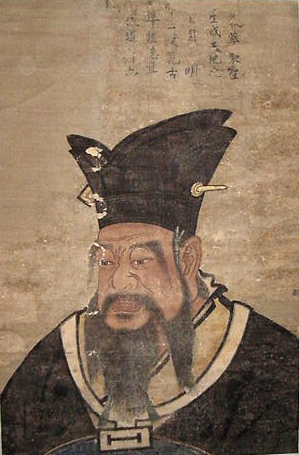

"Confucianism" is a tradition that traces its beginnings to an educated elite called shi of late antiquity that advised royal and regional feudal authorities during the Zhou dynasty (1134 - 250 BCE) on governing. At this time, governance emphasized the importance of virtuous rule through benevolence and proper conduct through ritual (li). Of this educated elite, the most prominent figure was a man named Kong Qiu (551 - 479 BCE), better known as Master Kong (Kongfu-zi or Kongzi). In the West, Kongzi is traditionally known as Confucius, a name given to him by Jesuit missionaries in the sixteenth century.
Kongzi was born in the Watch Tower (Queli) district of Qufu, then the capital of the State of Lu of the Zhou kingdom. His birth has been shrouded in myth, but some things we do know are that Kongzi was the son of Shuliang He. He, according to some sources, was a descendant of a less presigious lesser branch of a ducal lineage of the neighboring state of Song. Kongzi's father died before he was three, leaving him to be raised by his mother, Yan Zhengzai.
According to non-canonical sources, Kongzi was conceived when his mother went to Mount Ni and was inseminated by a black god, sometimes depicted as a black dragon or water god. Later, a unicorn appears to Kongzi's mother to indicate the imminent birth of the successor of the Zhou ruling house as the uncrowned king. When Kongzi was born, two dragons circled around the family's house and five elderly beings descended from heaven to their courtyard. Kongzi was born with the forty-nine birthmarks of a sage, as well as words inscribed on his chest that suggested he would order the world through mandated regulations. One of the birthmarks of a sage was his long earlobes, which is easily observed in many of Kongzi's portraits, such as the one on the right.
After his death, Kongzi was honored by the court and posthumously ennobled. Throughout imperial China, he was conferred a number of different titles, which can be found on the Canonization of Confucius section.
